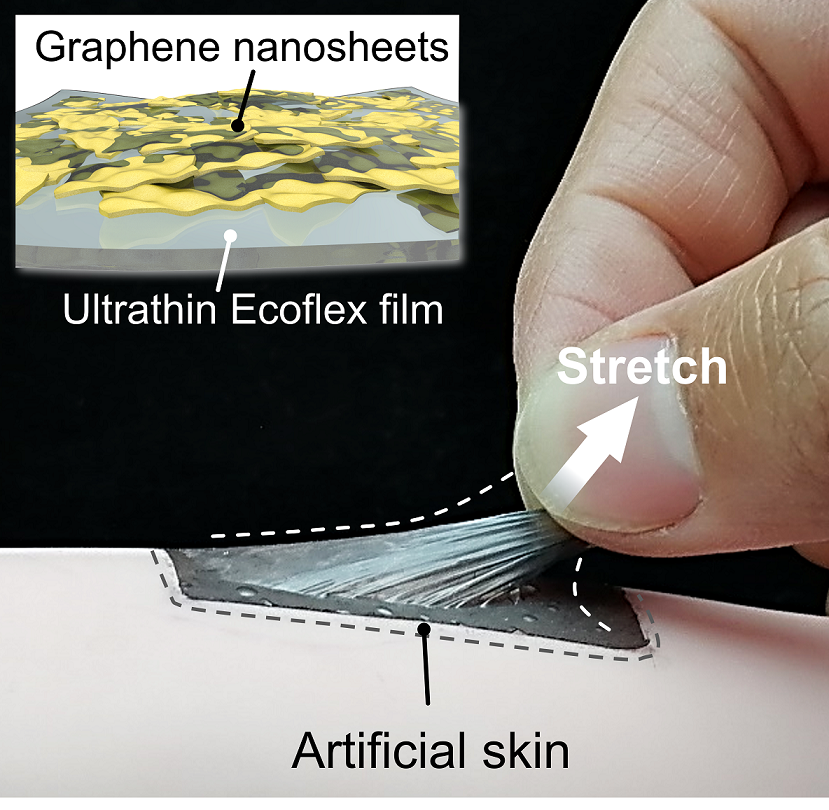Prof. CHEN Tao’s team at the Ningbo Institute of Materials Technology and Engineering (NIMTE) of Chinese Academy of Sciences (CAS) proposed strain-perception-strengthening (SPS) enabled biomimetic soft skin, which realizes the dynamic transformation from tactile to pain perception. The study was published in Advanced Functional Materials.
Creatures with biological soft tissues (e.g., skin) can achieve self-protection through passive strain mechanical stiffening and active perception of external stimuli. Prior to strain mechanical stiffening, the active protection can sense dangers in advance and thus greatly decreasing the risk of injury. However, it is still challenging to achieve effective active protection, which requires intense and rapid pain warning triggered by the sensory system.
To address this issue, researchers at NIMTE prepared a novel biomimetic skin, i.e. an elastic and conductive film (ECF), which is composed of elastomeric thin-film and assembled graphene nanosheets with an interlocked structural interface. The SPS effect endows soft skins with the dynamic transition function from tactile to pain perception.
The 2D graphene-based ECF demonstrates a positive correlation between gauge factor and strain, which is similar to the sensory systems of creatures. Besides, the synthesized biomimetic skin can achieve the normal tactile perception under low strain and pain perception above strain threshold.
In addition, the strain-perception-threshold value can be regulated from ~ 7.2% to ~ 95.3%, showing great potential in the development of diverse SPS-related applications.
The SPS-enabled sensory system can effectively simulate the pain feeling of human tissues, under the circumstances such as the unidirectional overstretch of muscle tendon and irregular stretching deformation of hand skin.
Inspired by the pufferfish, scientists at NIMTE designed a bionic pufferfish model based on the ECF as the self-supported artificial skin to sensitively detect the noncontact and contact mechanical stimuli and further actively inflate itself to a 3D deformation. Furthermore, the overinflated 3D deformation could be effectively captured by virtue of the typical SPS effect.
The concept of biomimetic soft skins enabled by SPS effect shows bright application prospects in the fields of human-machine interaction, smart prosthetics, and soft robotics.
This research was supported by the Natural Science Foundation of China (No. 52073295), Open Research Projects of Zhejiang Lab (No. 2022MG0AB01), the Sino-German Mobility Program (No. M-0424), Key Research Program of Frontier Sciences, Chinese Academy of Sciences (No. QYZDB-SSWSLH036), Bureau of International Cooperation, Chinese Academy of Sciences (No. 174433KYSB20170061), and K.C.Wong Education Foundation (No. GJTD-2019-13).

Fig. The SPS-enabled artificial skin for pain perception (Image by NIMTE)
Contact
ZHOU Wei
Ningbo Institute of Materials Technology and Engineering
E-mail: zhouwei@nimte.ac.cn

